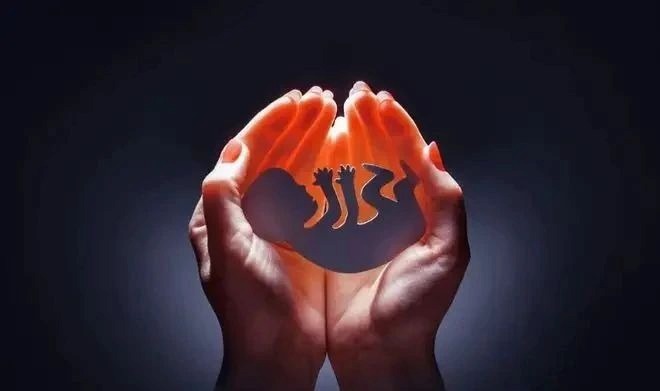Explaining the Causes of Repeated Miscarriages in IVF: Global Breakthroughs and Scientific Coping Strategies
n vitro fertilization (IVF) technology has brought hope to countless families, but repeated miscarriages in IVF are like an invisible barrier that breaks the hearts of many parents-to-be. About 15% of IVF cycles worldwide are terminated due to unexplained miscarriages, and this challenge is driving the medical community to explore in depth. This article combines cutting-edge international research to reveal the underlying causes of recurrent miscarriage and innovative solutions.

Chapter 1: The Truth Revealed by Global Data – Expectant Treatment vs. Interventional Treatment
Insights from cross-national studies
A clinical study covering 398 patients in 7 European countries showed:
Persistent pregnancy rate of 83.52% (76/91) in the expectant treatment group
86.11% (31/36) of pregnancies were sustained in the intervention group, but the difference was not statistically significant.
Key finding: expectant treatment that thoroughly investigates the cause of the disease is no less effective than costly interventions
Scientific Metaphor
Compare recurrent miscarriage to a combination lock – blind attempts (intervention treatment) may be futile, finding the right combination (clarifying the etiology) is the key.
The invisible impact of age in IVF
IVF pregnancy rates are 42% higher in patients under 30 than over 35 years old
Japanese study shows that the rate of chromosomal abnormalities in embryos rises exponentially with a woman’s age
30 years old: 30%
35 years old: 50%
Age 40: 90 percent
Case Insights
After 3 IVF miscarriages, Sophie (34) in Berlin, Germany, had a successful pregnancy after a rare gene mutation was discovered through whole exome sequencing and a customized protocol. “Technology is like a searchlight that illuminates the cause of the disease in the darkness.” explained her attending physician, Dr. Müller.
Chapter 2: The Male Factor – An Overlooked Key Player
The hidden effects of sperm quality
Oxidative stress: 3-fold increased risk of IVF miscarriage with >30% sperm DNA fragmentation (DFI)
Metabolic markers:
Abnormal hexadecanedioic acid levels in semen predict miscarriage with 72% accuracy
Vitamin C levels below 2.5mg/mL increase embryo sterilizations by 58
Global Response Strategies
Antioxidant therapy:
Coenzyme Q10 (200mg/day) + Vitamin E (400IU/day), 40% reduction in DFI
Mediterranean diet (rich in Omega-3), 35% increase in sperm motility
Cryogenics:
Testicular cooling device (6 hours of daily use) to reduce heat damage
Innovative tool:
Sperm “health scoring system” developed in France, with 20 parameters analyzed by AI
FDA-approved magnetic sorting technology (MACS) to remove apoptotic spermatozoa
Chapter 3: Environmental Toxins – The Invisible War on Microplastics
Plastic invasion in the placenta
Eye-opening data:
Placental microplastic levels in pregnant women who miscarried IVF were six times higher than in the healthy group
Polystyrene particles can penetrate the blood-fetal barrier and disrupt mitochondrial function
Animal experiment warning:
Nanoplastic Exposure Soars Mouse Miscarriage Rate from 15% to 67%
Defense Strategies
Water Purification:
Boiling + filtration removes 84% of microplastics (Environmental Science & Technology 2023)
Use glass/stainless steel containers instead of plastic
Dietary Detox:
Broccoli (rich in radish sulfide) boosts liver detoxification enzyme activity
Spirulina adsorbs intestinal microplastics, increasing elimination rate by 29 percent
Tech Breakthrough:
Cambridge, UK team develops biodegradable nanomaterials to replace plastics in healthcare
Chapter 4: The Immunization Puzzle – Rethinking Homoeopathic Immunotherapy
Therapies in Controversy
Lymphocyte immunotherapy (LIT):
European multicenter study showed only 8% improvement in IVF live birth rate (not statistically significant)
Potential risks: 12% incidence of allergic reactions
Intravenous immunoglobulin (IVIG):
Costly (~$5,000 for a single treatment), but limited level of evidence
New directions to explore
Gut Flora Regulation:
Swiss Study Finds Lactobacillus Abundance Positively Correlated with Pregnancy Success
Probiotic diet reduces risk of miscarriage by 37 percent
Epigenetics:
DNA Methylation Test Predicts Miscarriage Risk with 89% Accuracy
Chapter 5: Future Technology – Cracking the Genetic Code of Recurrent Miscarriage
The CRISPR Revolution
Japanese Breakthrough: Edit TNF-α Gene to Reduce Inflammatory Factor Storms
U.S. Trial: Repairing Embryonic HOXA10 Gene to Improve Endometrial Tolerance
Artificial Intelligence Prediction
Embryo rating system:
UK DeepMind algorithm predicts pregnancy outcomes with 91% accuracy through time-lapse imaging
Risk Modeling:
Integrates 200+ parameters (including environmental exposure history) to generate personalized risk reports
Chapter 6: A Scientific Guide for Global Families
A three-tiered defense system
IVF Preconception Screening:
Extended carrier screening (500+ genes)
Semen oxidative stress testing
Environmental Purification:
Installation of reverse osmosis water purification system
Use of HEPA air filters
Active Interventions:
30 minutes of forest bathing daily (28% reduction in cortisol)
N-acetyl cysteine supplementation (600mg/day) to boost glutathione levels
Cross-Cultural Wisdom
Nordic Sauna Therapy: 2 mild saunas per week to improve pelvic blood flow
Indian Ayurveda: specific yoga asanas to regulate endocrine axis
Chapter 7: Humanistic Perspective – Balancing Science and Mindfulness
Mental Reconstruction Program
Positive Thought Therapy:
8-week program reduced anxiety scores by 43% (Harvard study)
Art Healing:
A “Gallery of Life” in Holland, expressing the fertility journey through paintings
Global Support Network
Multilingual counseling from the International Repeat Pregnancy League (IRPL)
Online communities share success stories (e.g. #RainbowBaby hashtag)
Life lessons
Recurrent miscarriage is not the end, but the beginning of deeper knowledge of life. From gene editing to environmental cleanup, humanity is weaving safety nets with technology. As Nobel Prize winner Elizabeth Blackburn said, “Every setback is a DNA story waiting to be gently interpreted.” On this path, we are both explorers and guardian poets of life.
相关推荐
- International Fertility Experts Reveal 4 Golden Rules for Ovarian Function Assessment
- The optimal range for egg retrieval in IVF: 8–15 eggs yield the highest live birth rate
- Why do fertility doctors always advise you to do IVF before it’s too late?
- Scientific Selection Guide for Natural Fertilization vs IVF
- Deadly Warning of Fetal Motion Disappearing at 38 Weeks|International Center for Perinatal Medicine
Search within the site
Surrogacy News
Hot Tags.
Georgia Surrogacy Services,Legal IVF Hospital,Global Fertility Agency